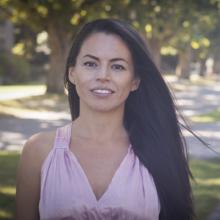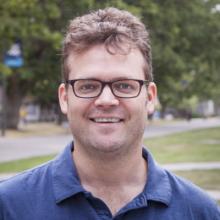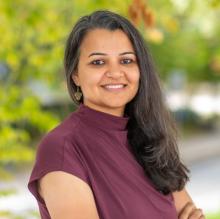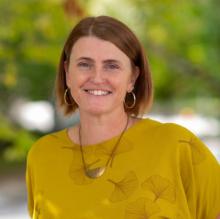My PhD research follows huayruro – hardwood trees with red and black seeds – as an example of the multiple ways that Amazonian people (Indigenous Kichwa and non-Indigenous mestizos) engage with trees and forests. By following huayruro trees in different forms – as living tree, as hardwood, as seed – across urban and rural landscapes in San Martin, I explore the stories people tell and the ways in which they interact with and use trees.
Research Description
How can we “think with” huayruro trees to see the social connections people in San Martín, Peru, create with trees and forests? In the context of high levels of deforestation, my PhD research follows huayruro – hardwood trees with red and black seeds – as an example of the multiple ways that Amazonian people (Indigenous Kichwa and non-Indigenous mestizos) engage with trees and forests. The hardwood is used in construction, and the red and black seeds are a powerful protective talisman. Mestizos and Indigenous Peoples, including Kichwa-Lamistas, have long recognized the power of plants: many florae have the capacity to heal; some possess the ability to teach and to inform; but others also harbour ambivalent spirits, which may be harmful if not respected. By following huayruro trees in different forms – as living tree, as hardwood, as seed – across urban and rural landscapes in San Martin, I explore the stories people tell and the ways in which they interact with and use trees. The Peruvian Andean Amazon region of San Martin has had the greatest national forest loss and reducing the annual deforestation rate has become a crucial aspect of government and civil society initiatives in the area. How trees are valued and the stories people tell about them have important implications for deciding how to address deforestation.
What does being a Public Scholar mean to you?
Public Scholars are accountable to the public beyond academia, to the communities that are affected by their research. This public accountability can be expressed in multiple ways – it can be about making research results accessible and understandable to wider audiences, or it can be by directly collaborating with community partners. Being a Public Scholar, to me, means making my research meaningful, not only to my discipline, but also to broader publics.
In what ways do you think the PhD experience can be re-imagined with the Public Scholars Initiative?
The Public Scholars Initiative helps to recognize, elevate, and facilitate the kind of academic work that has potential for real-world impacts. So much of a standard PhD program is focused on academic advancement and theoretical development. This focus on scholarly training is important – academics help craft us into capable and rigorous researchers – but the Public Scholars Initiative allows PhD scholars to ensure their academic work produces relevant research. The PSI recognizes that positive change often needs creative approaches, and it helps to foster that creativity.
How do you envision connecting your PhD work with broader career possibilities?
Rigorous research and the ability to communicate research results to a wide audience are important skills which have value far beyond universities. My PhD work, and the associated research and science communication skills, prepares me for a career dedicated to fostering ecologically just futures. Understanding how people engage with and value the “natural” environment is one of the pressing issues of our times, and I will be prepared to work in academia, in private research institutes, and in NGOs and not-for-profits who practice and promote conservation and restoration.
How does your research engage with the larger community and social partners?
Alongside my dissertation, I am working to create a participatory “audio ethnography”: rather than sharing translated copies of my dissertation with the people who helped make my research possible, I will create a podcast-style limited radio series. With the support of the Public Scholars Initiative, I am able to ensure that this audio ethnography can be made in collaboration and with the participation of the people who I interview and with the people who I spend time with throughout my research fieldwork. By broadcasting on local radio, I can reach out to a larger community and hopefully encourage conversations about the different ways to value trees.
Why did you decide to pursue a graduate degree?
I have always been interested in issues of environmental sustainability and social justice, and I believe that research is one way to work toward these goals. Graduate studies teach and hone research skills, and so it made sense to first pursue an MA, and now I’m working towards my PhD. I am pursuing my PhD because it opens up the opportunity for me to work as a researcher.
Why did you choose to come to British Columbia and study at UBC?
UBC is a world-recognized institution and they have an excellent Anthropology department. I first came to UBC for my MA; I stayed for my PhD because of UBC’s intellectual community. I have a supportive supervisor – very important for a PhD! – and I have been lucky to have been able to connect with different faculty members across the university for fruitful conversations.
Public Scholars are accountable to the public beyond academia, to the communities that are affected by their research. This public accountability can be expressed in multiple ways – it can be about making research results accessible and understandable to wider audiences, or it can be by directly collaborating with community partners. Being a Public Scholar, to me, means making my research meaningful, not only to my discipline, but also to broader publics.





